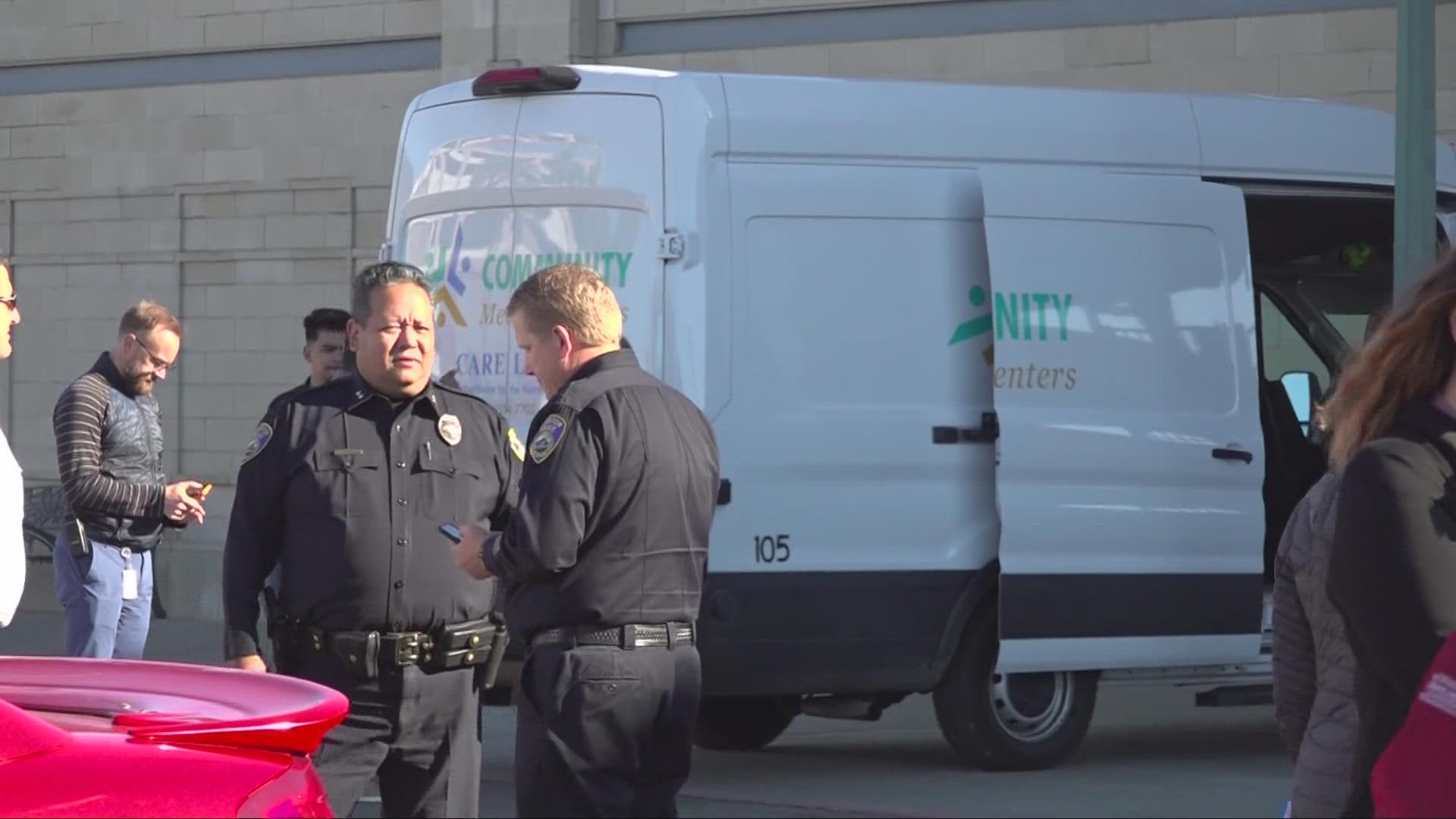STOCKTON, Calif. — A team of mental and behavioral health specialists will soon respond in place of police and fire crews to some 911 calls in Stockton under a new program unveiled by the city Thursday.
"It's going to have an incredible impact, of course, it's going to be overtime," said Stockton Chief of Police Stan McFadden. "It's going to enable our folks to get the right people at the scene at the right time."
Teams will consist of a licensed social worker, a case manager and a medical assistant. Dispatchers will send the teams to calls where they believe someone is in a state of crisis.
"It will be those calls for service where we can tell up front that this is someone in crisis. It may be by something our dispatchers hear or something they're told," McFadden said. "I think for a long time we've spoken about this, wanting this to happen."
The mobile crisis intervention response pilot project, first approved by a unanimous Stockton city council vote in July, is being spearheaded by local nonprofit Community Medical Centers.
$5.7 million has been allocated for the program, which will be in its pilot stage for the next three years. The money comes from the city's allotment of the federal government's coronavirus pandemic American Rescue Plan Act funds.
"Humans, we're very fragile. We saw things that demonstrated that during the pandemic, domestic violence was at an all-time high and just overall well-being of people was comprised," Stockton's City Manager Harry Black said. "This initiative is an outgrowth of our wanting to say that we wanted to do something about that."
For the rest of the year, the program will focus on 911 calls in the downtown area of Stockton, expanding to other areas throughout the city in January.
Project coordinators also hope to expand the project to include more teams providing services during peak hours each day of the week.
Objectives for the project include decreasing repeat 911 callers, increasing follow-up with more services, decreasing fear or hesitancy of calling the police, increasing community trust and diverting people from the criminal justice system.
Part of the 3-year project's goal will also be to analyze how the program can become fiscally self-sustaining beyond its pilot stage.
"We have conditions at some of these calls for service that aren't crime-related," McFadden said. "So I think this is a great move for the city, for the community and I'm looking forward to it."
Watch more Stockton stories from ABC10: Stockton historic buildings going up in flames concern city officials



















